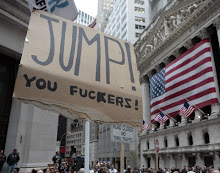
All I can say is go see it! I know this is two weeks too late but I have been busy with school (but not too busy to see this amazing film the day it came out). I write with this sense of urgency for a few reasons. First, it's a great movie by one of my all time favorite directors (Spike Lee) and I wish to pass my enjoyment and recommendation on to others. Secondly, it is such an important historical film that finally recognizes the neglected role of African-American soldiers in World War II, and the racism and hypocrisy of this country that they had to persevere through. St. Anna also gives credit where credit's due by recognizing the contributions of the Italian peasantry and the resistance fighters who also get the historical shaft in the United States. And finally, building off the last point, not enough people are seeing this important movie and it made less money than a stupid, post- Mike Seaver, Kirk Cameron, fundamentalist movie called Fireproof.
Now, I'm not a film critic and there's no way I could write it better than Roger Ebert, whose review you should definitely check out, but I will weigh in on the controversy over the representation of the actual massacre at St. Anna and the Partisans in the film in general. The other great review by Joe Allen at Socialist Worker, highlights the neglected history of African-American soldiers in World War II and is the first review that I've read to (rightly) bring up the controversy in Italy. Pro-Partisan/anti-Fascist groups are angry with the film over what they view as the movie's version of the massacre at St. Anna as being provoked by Partisans, in collaboration with the Nazis.
Now, they have every reason to be sensitive about this subject, especially since fascism is on the rise again in Italy and Europe in general. I also agree, that Spike Lee's response was insensitive to say the least. However, I believe he could have made a better case for his film's treatment of the events in question than just saying "I don't apologize for anything." (For the record, James Mcbride, the author of the novel and the screenwriter did apologize).
In terms of what was actually on the film, I did not get the perception that the Partisans were bad or collaborator's at all. In fact I felt quite the opposite. The Partisans die heroically in battle fighting alongside the African-American soldiers against the Nazis, defending the city. Nazi military officials discuss their policy of killing 10 Italian villagers for every one Nazi killed by a Partisan, which was historically accurate. They also express that they are on the hunt for a lead partisan named The Butterfly, and that they have informants in their search for him. The character, Rodolfo, was either a Partisan who was a horrible traitor and betrayed his comrades in order to collaborate with the Nazis, or was placed there from the beginning as an informant (they allude to his brother having been a fascist). With both scenarios, Rodolfo, is portrayed as a horrible, selfish, back-stabbing Judas that gets his divine justice 30 years later, as the film reveals at the end. The actual scene of the massacre was horrifying and displayed the absolute evil and devastation brought about by the Nazis - wherever they were.
The other aspect that I could see as being controversial is that "the Butterfly" feels guilty about the killing - not because he caused it, but because he feels some sense of guilt for not turning himself in. These would seem to be the moral questions of any revolutionary guerilla who has to continue his or her fight for the people by remaining clandestine, and sometimes having innocent sympathizers die for that necessary secrecy. When he discovers that Rodolfo is a traitor, he tries to kill him. Either way, the controversy is unfortunate, because the fight against racism in the United States is the same as the fight against the far-right in Italy. Both sides of this controversy should be in solidarity over this movie, but I will concede that Lee should have made the St. Anna massacre clearer, as well as the heroism of the Partisans. However, this does not negate its importance, especially in this country, whose history and society continue to be blighted by racist untruths and neglect of African-Americans' sacrifice and struggle that we are all better off for today.
-Steve
P.S. I also saw Michael Moore's, free new documentary called Slacker Uprising. Go to www.slackeruprising.com to download it free. It has great right-bashing and cool cameos so yea. Also, check out Mike's plan for the financial crisis. He's saying what politicians should be - Main St. needs to be bailed out and that we need a national bank, free from the predatory, insecure, unequal, and unpredictable nature of private banks.
P.S.S. In less serious movie news, Nick and Norah's Infinite playlist was super sweet and funny.




No comments:
Post a Comment